“See Me” Exhibit Explores Experiences in Foster Care
The Power of Expression: Amplifying Voices of Youth in Foster Care

In every community, hidden stories of youth navigating life within the foster care system unfold every day. These young individuals confront numerous challenges, including instability, educational disruptions, and the looming threat of homelessness. Amidst these trials, creative expression emerges as a beacon of hope, offering a pathway for these youth to share their experiences, advocate for change, and envision a brighter future. This blog post highlights the importance of fostering such expressions and delves into the critical issues of the school-to-prison pipeline, homelessness, and the transformative work being done to support these vulnerable members of our society.
The Stark Reality of Foster Care and Education in Georgia
In Georgia, the foster care and education systems face significant challenges that directly impact the lives of over 10,700 children in foster care. Last school year alone, Georgia’s schools reported suspending or expelling over 118,000 elementary and secondary students. Such disciplinary measures not only disrupt a child’s education but also significantly increase the likelihood of dropping out and encountering legal troubles. In fact, in 2019, 35,872 kids were referred to Georgia’s juvenile courts for alleged offenses, many sent directly from schools for behaviors that could have been managed through more effective school discipline measures.
Compounding these educational challenges, fewer than 40% of Georgia’s foster youth graduate from high school, underscoring a system in dire need of reform to provide adequate educational and mental health supports.
Addressing the School-to-Prison Pipeline
Georgia Appleseed’s School Justice Initiative is at the forefront of efforts to dismantle the school-to-prison pipeline and restore the potential of countless children failed by the state’s education, juvenile justice, and foster care systems. Through the FAIR Program (Fairness, Advocacy, Individualized Representation), over two hundred children in foster care receive direct legal support annually, preventing their entry into the school-to-prison pipeline. Remarkably, advocacy efforts during the 2022-23 school year prevented more than 20,000 days of out-of-school suspensions or expulsions, preserving critical educational opportunities for these children.
Since 2010, policy reforms led by the School Justice team have significantly reduced school suspensions and expulsions, keeping over 377,000 children in school and leading to a substantial decrease in juvenile court referrals—from 50,418 in 2013 to 35,872 in 2019. These reforms not only keep children in educational settings but also reduce the likelihood of their involvement in the justice system.
Confronting Housing Insecurity
The Housing Justice Initiative by Georgia Appleseed tackles the pressing issue of unhealthy and unsafe housing conditions that adversely affect children’s physical and mental health, educational outcomes, and overall well-being. With an estimated 45 million metropolitan American homes harboring health and safety hazards, and over 200 unhealthy complexes identified in the Atlanta Metro area alone, the urgency for action is clear. The 2020-21 school year report by the Georgia Department of Education highlighted that 31,768 children were unsheltered or precariously housed, spotlighting the dire circumstances faced by many.
Through collaboration with community leaders and advocacy for policy changes, the initiative has supported over 3,000 families in Clayton County (metro Atlanta’s poorest county) to secure stable, healthy housing. The Georgia Healthy Housing Coalition, convened by Georgia Appleseed, has united over 80 organizations to champion habitable living conditions and family stability, showcasing the power of collective action in driving systemic change.
Expression as a Form of Liberation
For youth in foster care, the arts and various forms of expression serve not just as hobbies, but as essential outlets for coping with trauma, articulating experiences, and imagining a future beyond their current circumstances. Programs and initiatives that encourage these forms of expression provide spaces where these children and teenagers can feel seen, heard, and understood. Through painting, writing, music, and digital media, they tell their stories, which are powerful tools for personal growth and advocacy.
Connecting Dots: From Expression to Impact
The significance of providing platforms for these stories cannot be overstated. When youth in foster care share their experiences, they not only contribute to their healing process but also raise awareness about the systemic issues affecting them. By bringing these personal narratives to the forefront, we can begin to see the individuals behind the statistics and understand the urgent need for systemic reform.
The Role of Community and Advocacy
The challenges faced by youth in foster care, exacerbated by the school-to-prison pipeline and housing insecurity, underscore the need for continued advocacy, reform, and support. Creative expression remains a vital outlet for these youth, providing them with a platform to voice their experiences and advocate for a better future. By amplifying their stories, we not only contribute to their healing journey but also call attention to the systemic changes needed to ensure all children have the opportunity to thrive. Through concerted efforts and meaningful engagement, we can make a lasting impact on the lives of these vulnerable members of our community.
Their stories are not just narratives of struggle but powerful calls to action for justice, equity, and compassion in our society.

